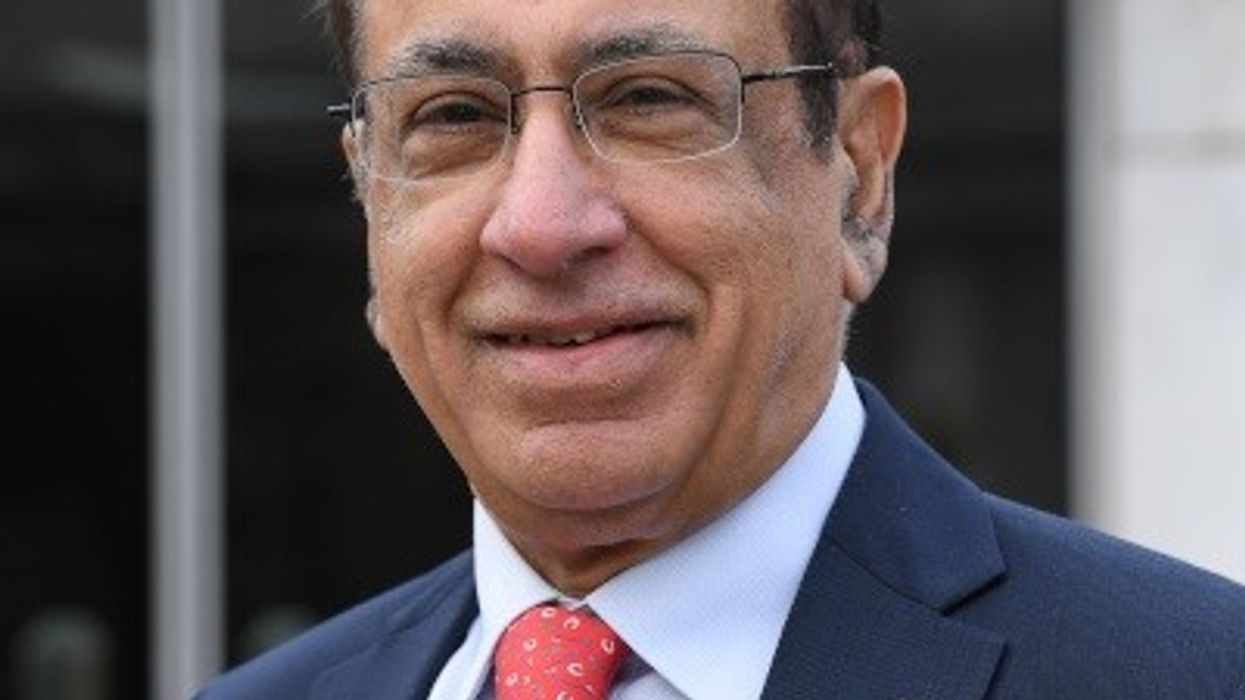Celebrating South Asian Heritage Month with Salim Jetha, who reveals how his East African roots and core values of fairness and transparency fueled the success of Avicenna Buying Group
“When I reflect back on the ingredients of my success, I would point to the guiding principles of fairness, transparency, friendship, and honesty—many of which I inherited from my heritage,” shares Salim Jetha, Chair of Avicenna in an exclusive conversation with Pharmacy Business.
Salim Jetha has steered Avicenna Buying Group as its Chair for over three decades and continues to influence its direction part-time.
His story highlights how inclusivity and resilience have been integral to his enduring success and leadership.
"Pharmacy seemed to fit well, both as a profession and as a business,” Jetha reflects.
This perspective is rooted in his early life in East Africa, where South Asian communities thrived on education and business acumen.
“It was very pluralistic society, we celebrated everything—Christmas, Diwali, Eid. We didn’t need appointments to visit each other’s homes. It was a close-knit environment where mutual respect and support were ingrained in daily life,” he recalls.
Before establishing a long-standing career in the pharmacy sector—a field he describes as a 'haven'—Jetha explored Chartered Accountancy prior.
However, the smoky office environment posed challenges, prompting him to shift his career to safer, smoke-free environment of pharmacy.
This transition aligned perfectly with his "personal and community values", allowing him to embrace a culture of business and continuous learning that he treasured from his East African upbringing, spanning from his birthplace in Zanzibar to Dar-es-Salaam and Nairobi.
Jetha’s education at Chelsea College (now King’s College) provided him with a supportive network of fellow East African students, offering a sense of home away from home and easing his transition into the UK in 1971.
“The connection with others from East Africa helped me adapt. We shared similar backgrounds, which made the transition smoother. We didn’t have any family and relied on friends and those who had been here earlier for advice and guidance,” he says.
“At Halls of residence, my next-door neighbour had a very strong Yorkshire accent, and it took me a little while to understand him. Gradually, I learned to understand different accents, including Scottish.”
So, how did Avicenna Buying Group get established, and how did his South Asian heritage influence his work culture?
Jetha reveals that the 1992 recession and significant financial challenges following the purchase of his pharmacy in Lewisham, South London, catalysed the formation of Avicenna—a buying group founded by him and 25 other pharmacists.
“With a house, mortgage, and a business loan, cash flow was a major challenge, and I had to work long hours—very much the ethos of my forefathers,” Jetha explains.
Named after Avicenna, the renowned 10th and 11th-century philosopher and physician honoured in the Royal Pharmaceutical Society of GB’s Coat of Arms since 1841, the group was founded on principles of transparency, support, and inclusivity.
“We wanted to create a network based on fairness and collaboration, where members could support each other regardless of race, gender, or background,” Jetha describes.
By focusing on an inclusive approach, under his leadership as CEO, Avicenna expanded significantly, growing from a small collective to encompass over 1,200 diverse members across the nation.
“We built Avicenna on fundamental principles of transparency and support, welcoming members from all races, genders, and cultures," he emphasizes.
Jetha’s impact extended beyond managing Avicenna; he became a prominent advocate for the pharmacy sector, speaking at international conferences and addressing sector needs.
“Initially, expanding membership was straightforward, thanks to my network of friends from college and my East African upbringing.
“We also offered the option for members to become shareholders, which provided key benefits such as improved purchasing power, regulatory and business support, and opportunities for shareholding.”
“My role involved expressing my opinion in the press, campaigning for the sector, developing links across all stakeholders, organizing conferences, and supporting those in need.
“My strong knowledge of the independent sector was recognised through addresses at various conferences in the UK, India, Dubai, and Tanzania.”
Avicenna, initially a collective of pharmacies, now includes 135 managed stores and a network supporting over 1,000 independent pharmacies across the UK.
Championing Community and Environmental Initiatives
The group’s commitment extends beyond business; they are dedicated to community and environmental causes.
In June 2020, Avicenna partnered with Mind for the Moving Miles for a Mind campaign, raising £10,000 to support mental health initiatives amidst the pandemic.
Although Avicenna was sold in 2019, Jetha’s commitment to the business is reflected in his continued contribution to the organisation on a part-time basis with the new owners.
He remains engaged in addressing the current economic challenges facing the pharmacy sector.
“The sector is facing significant economic pressures. We need to work together to find solutions and prevent further closures,” he asserts.
Looking at current trends in the pharmacy sector, Jetha believes, “The sector is experiencing a great economic crisis, but recent government changes may help.
“The Health Minister has admitted that the NHS is broken and is seeking ways to solve the issue. Being a member of both LPC and NHS, we are all trying to find solutions to prevent even more closures and need to unite in our efforts.”
Reflecting on his journey, Jetha underscores the importance of fairness, transparency, friendship, inclusivity, and honesty.
“The application of these principles is not restricted to those of Asian heritage but extends to the world at large.
“I recall my previous chairman, who was an excellent mentor, advising me that in my position as CEO, I could either demand respect or command respect, and he suggested I work on the latter.
"I cherish the wonderful people I have met in my life; some of whom have become my lifelong friends and the lessons I have learned,” he shares.












